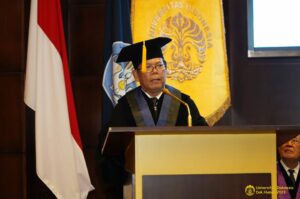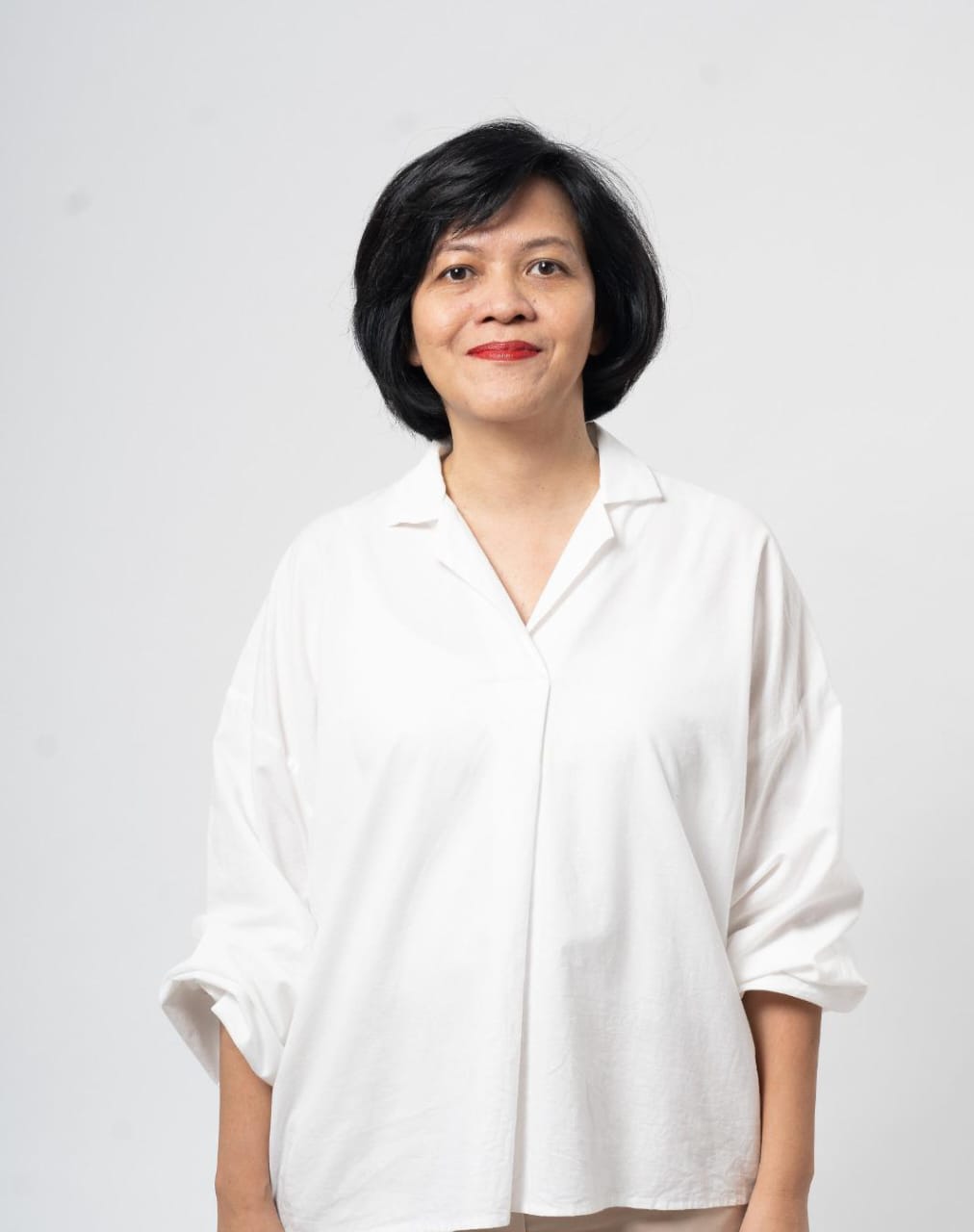
Professor of FMIPA UI, Prof. Dr. rer. nat. Budiawan, Studied the Risks and Benefits of Chemicals to Protect Public Health and the Environment
Prof. Dr. rer. nat. Budiawan was inaugurated as a professor at the Faculty of Mathematics and Natural Sciences, Universitas Indonesia (FMIPA UI) on Wednesday, March 8, 2023, at Balai Sidang, UI Depok Campus. On this occasion, he explained his studies related to the risks and benefits of chemicals measured by their precision for health and environmental protection.
In his inaugural speech, Prof. Budiawan, who is also the Vice Dean for Education, Research, and Student Affairs at FMIPA UI, said that Indonesia is a country rich in chemicals that come from nature. Among other things, the mining sector, petroleum, coal, and other natural resources are based on other natural chemicals. However, it is very unfortunate that the scope of mastery of science and technology as well as the ability of human resources (HR) in assessing and managing the risk of using chemicals in a precise, smart, thorough, well-measured, and correct manner is still very weak.
“Chemicals naturally have inherent hazardous properties and pose a risk to health and the environment if they are not utilized precisely, i.e. smart, accurate, measurable, correct, and safe. Incidents of misuse and abuse of chemicals so far, such as the use of explosives by terrorists, cases of cyanide coffee, formalin or borax in food and cases of Ethylene Glycol and Diethylene Glycol in cough syrup for children which resulted in death, became a lesson learned for us,” said Prof. Budiawan. Therefore, he added, the management of chemical risk in regulations or policies must be integrated (not sectoral) and harmonized in harmony with international policies, while still taking into account the priority of national interests.
Chemical risk assessment is a concept based on research and scientific data with the output data being carried out through a process for assessing the risks and benefits of chemicals. The aim is to protect society and the environment from possible adverse effects from an activity or use of chemicals throughout their chemical life cycle.
The research conducted by Prof. Budiawan and his team specifically focused on research and studies of bioaccumulation of chemical compounds in situ and in vivo. In addition to protecting society and the environment, this risk assessment aims to maximize the use of chemicals to improve people’s welfare and protect society in accordance to Sustainable Development Goals (SDGs). “Increasing the added value of the benefits of chemicals through downstreaming our natural resources should be able to increase the welfare and prosperity of the nation as mandated by the 1945 Constitution of the Republic of Indonesia,” said Prof. Budiawan.
The professor inauguration ceremony was led directly by UI Rector Prof. Ari Kuncoro, SE, MA, Ph.D., and broadcast virtually via Universitas Indonesia and UI Teve Youtube channels. “The results of this toxicological study are very necessary and assist in making wise decisions between the risks and benefits of chemicals with precision apart from other important toxic parameter factors to be studied so that the risk management of chemicals is safe for public health and the environment,” said Prof. Ari. The inauguration was also attended by the 2010-2014 Indonesian Cabinet Secretary, Dr. Dipo Alam and Director General of Environmental and Forestry Law Enforcement, Ministry of Environment and Forestry of the Republic of Indonesia, Ratio Rido Sani.

Prof. Budiawan earned his bachelor’s degree at the Department of Chemistry, Faculty of Mathematics and Natural Sciences, Universitas Padjadjaran and graduated in 1987. Then he continued his Master’s degree in Dipl. Chem in the Department of Chemistry, Faculty of Chemistry and Pharmacy, University of Würzburg, Germany (1994). Still at the same campus, he earned his doctoral degree of der Naturwissenschaften (Dr. rer. nat.) Institute for Toxicology, in 1998.
Several of his scientific works in recent years include The Effect of Zinc Speciation and Its Concentration on Bioaccumulation in Pomfret (Colossoma macropomum) and Sepat Fish (Trichogaster Trichopterus) published in 2023, In-Vitro Study of Acrylamide and TBHQ Compounds on The Generation of DNA Adduct 8-Hydroxy-2′-Deoxyguanosine as Biomarker of Oxidative DNA Damage (2022), Bioaccumulation and retention kinetics of trace elements in the horse mussels Modiolus micropterus exposed to different environmental conditions (2021), dan Detection of DNA adduct 8- hydroxy-2′-deoxyguanosine (8-OHdG) as a toxicity bioindicator to the effects of nickel on Ni-Cr alloy prosthesis users (2020).



